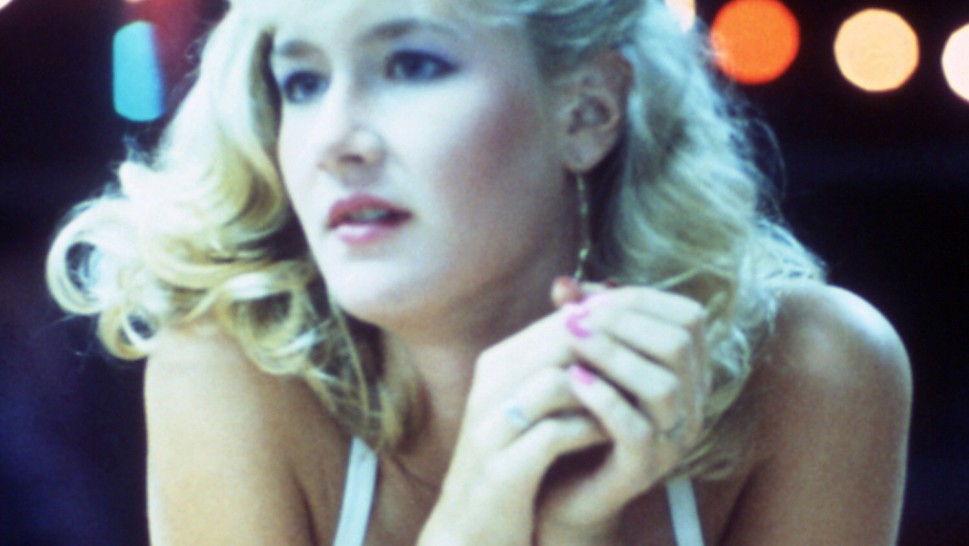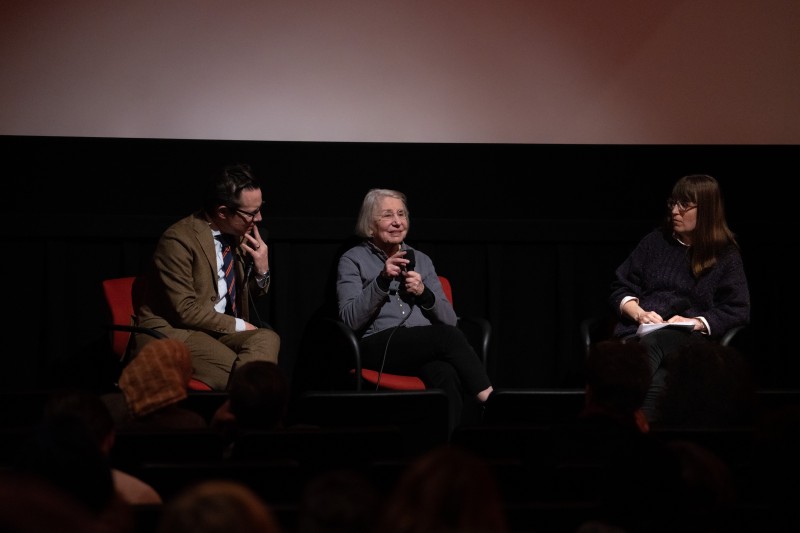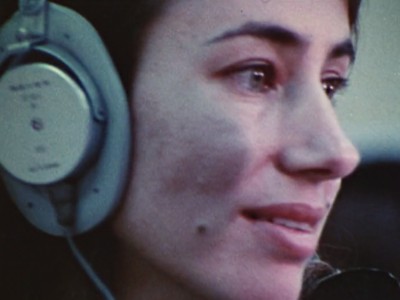
Smooth Talk
With Laura Dern, Treat Williams, Mary Kay Place.
US, 1985, DCP, color and b&w, 92 min.
DCP source: Janus Films
As one of very few women in the film industry, Joyce Chopra (b. 1936) details her hazardous journey through filmmaking in a frank and revealing new memoir, Lady Director. Suffering abuse at the hands of men since an early age, she elucidates the experiences of an independent woman in personal and professional relationships, as well as the tricky life of a filmmaker working within and outside of Hollywood, made trickier by the ubiquity of male dominance and desire, rarely checked or challenged. Admitting both her mistakes and successes, Chopra delivers a page-turning, eye-opening behind-the-scenes diary, valuable not only to filmmakers, historians and women, but to all who chase dreams that seem out of reach. More than simply the tale of a woman working hard in film and life, Chopra’s book is also the saga of creative cinematic works, and the myriad obstacles they must surmount before appearing on the big screen in anything resembling their intended form.
Before she even envisioned herself as a skilled director, writer and editor, Chopra followed her inspiration regardless of means. After college and a stint in Paris, she and a friend—with $200 between them—opened the legendary Club 47, a café that hosted blues, jazz and folk musicians in Harvard Square—now most famous for launching the career of Joan Baez. Despite the club’s success, Chopra was unable to ignore a seemingly irrational desire to make films, so she sold her half of the ownership and left for New York with only a handful of names and phone numbers of those in the business.
She eventually received her introduction to film production via the burgeoning art form of cinema verité and its passionate innovators Richard Leacock and D.A. Pennebaker. It was with Leacock that she would make her first film, the documentary short Happy Mother’s Day (1963), which followed the media frenzy surrounding the birth of quintuplets in South Dakota. This led to more documentaries mostly for public television—including the autobiographical short Joyce at 34 made during her pregnancy. Meanwhile, she and her second husband, writer Tom Cole, attempted to collaborate on narrative films with his scripts and her direction. After she successfully produced a play of Cole’s for the series American Playhouse, PBS agreed to provide some initial funding for an adaptation of a Joyce Carol Oates short story with Chopra finally at the helm.
Winning the Grand Jury Prize (Dramatic) at Sundance and immense critical acclaim, Smooth Talk was an auspicious start to what Chopra envisioned as a long career in feature films. This dream was soon derailed by Hollywood’s corrupt power structure shaped by misogyny and delicate egos. When not entirely blocked from seeing her idea to fruition—as with her adaptation of Jay McInerney’s novel Bright Lights, Big City—she was insidiously undermined, as in the case of Diane Keaton’s pet project The Lemon Sisters (1989). After too many run-ins with major players, she was essentially blacklisted from Hollywood and turned to the parallel reality of television. Seen at the time as a lesser form of filmmaking, the world of television proved slightly less patriarchal, and Chopra began the next phase of her career directing many “movies of the week” as well as individual series episodes. More recently, she made the documentary Gramercy Stories (2008)—about a safe home for gay and transgender teens in New York—and she takes part in the work of BYkids, an organization that helps young people across the globe tell their stories through film with the guidance of an experienced filmmaker.
We are thrilled to welcome Joyce Chopra to the Harvard Film Archive to screen and discuss her early, trailblazing documentary Joyce at 34 as well as the digitally restored Smooth Talk, which is now enjoying a renaissance as a lost gem of 80s independent cinema and early testimony to Laura Dern’s uncanny talent. – Brittany Gravely
Signed copies of Joyce Chopra’s 2022 memoir Lady Director: Adventures in Hollywood, Television and Beyond will be available for purchase before and after the screening.
Transforming the spare Joyce Carol Oates short story “Where Are You Going, Where Have You Been?” into a rich coming of age drama with a dark center, Chopra collaborated with her screenwriting husband Tom Cole to tenderly craft and perfectly cast her feature debut. The heart of Smooth Talk is the complexity of Laura Dern’s performance as Connie, who is awakening to her sexual desires and those she elicits in men. Navigating the different tensions of both her fraught home life and various suburban teenage hangouts, she simultaneously radiates naiveté, sensitivity and a rebellious wildness. The latter draws the attentions of a handsome but unsettling stranger—played with controlled menace by Treat Williams. His disturbing pursuit culminates in an agonizing showdown with Connie, who faces a stark ending to her adolescence. In her first starring role, Dern immediately caught Hollywood’s eye, and even Joyce Carol Oates conceded, “Laura Dern is so dazzlingly right as ‘my’ Connie that I may come to think that I modeled the fictitious girl on her…”
Featuring the first live birth broadcast on television, Joyce at 34 was a revolutionary film at a time when women were still having trouble with locked doors, never mind the glass ceilings. Chopra enlisted filmmaker Claudia Weill to document the last months of her pregnancy as a happily working woman. The swiftly moving drama casually touches on men’s conflicting ideas of their wives’ lives and the fluctuating feelings of the expectant mother, as well as the limited options and repressed frustrations of Chopra’s mother’s peers, who gather for their monthly luncheon. Even Chopra’s progressive husband—whose appearance in the delivery room also added shock value at the time—admits to his blind spots and reluctance to take up some of the household slack so that she can have her career and a baby too.
This film has been preserved with funding from the National Film Preservation Foundation.












